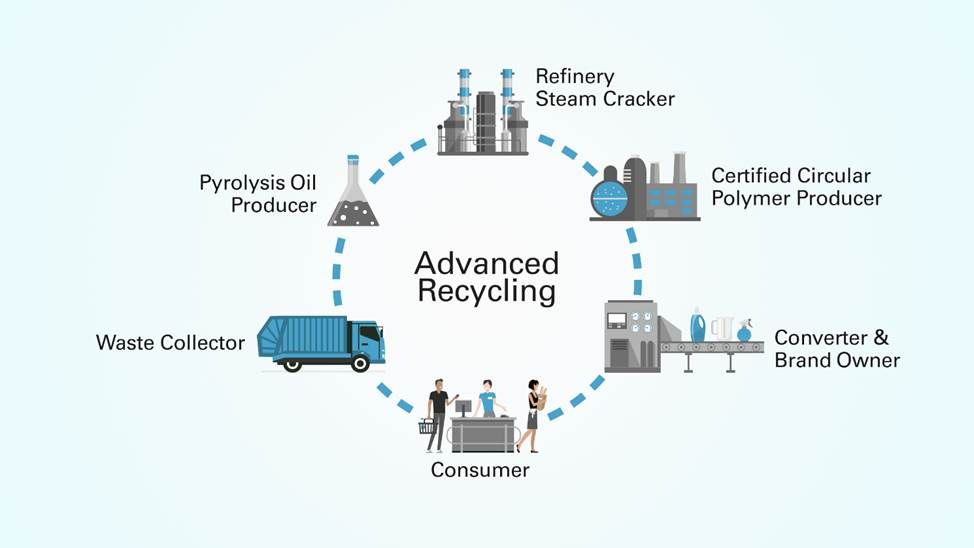SABIC/bp sign agreement to drive a circular economy

Latest collaborations between bp and SABIC will see the two organisations work to increase the production of certified circular products. The process takes used mixed plastics to be used as feedstock to reduce the amount of fossil fuels needed at SABIC’s petrochemical production site in Gelsenkirchen (Germany).
“SABIC is committed to helping to create a new circular economy where plastic never becomes waste. Advanced recycling allows us to increase the production of more sustainable materials and use our planet’s resources wisely, whilst reducing the use of conventional approaches such as landfill and combustion. Advanced recycling has a crucial role to play in the current recycling mix as it can capture value from plastic waste streams that have traditionally been ignored or discarded. We continue to increase our collaborations with upstream suppliers and downstream customers, and this new initiative with our long-term partner bp takes us one step further to achieving our vision,” commented Fahad Al Swailem, Vice President, PE & Sales at SABIC.
Certified circular polymers
The use of certified circular polymers are a key part of SABIC’s Trucircle portfolio. The Saudi Arabian multinational chemical manufacturing company, produces certified circular polymers by using advanced recycling to convert low quality mixed and used plastic into pyrolysis oil.

As part of the partnership the oil will be processed by bp’s Gelsenkirchen refining site and used by SABIC in its Gelsenkirchen polymer plants to produce certified circular products.
Both bp’s certified base chemicals and SABIC’s certified circular polymers have been recognised by the International Sustainability and Carbon Certification plus (ISCC+) scheme which certifies content and standards across the value chain.
“This is an important milestone in our vision of achieving up to 30 percent of our ethylene and propylene production from sustainable, recyclable raw materials by 2030. It is a fantastic achievement on the part of the Gelsenkirchen team, after more than a year’s preparation, to set up the new initiative with our partners at SABIC. At the same time, it is what bp’s recently announced Net Zero strategy is all about,” added Wolfgang Stückle, Vice President Refining and Specialities Solutions Europe & Africa at bp.
For more information on manufacturing topics - please take a look at the latest edition of Manufacturing Global.

